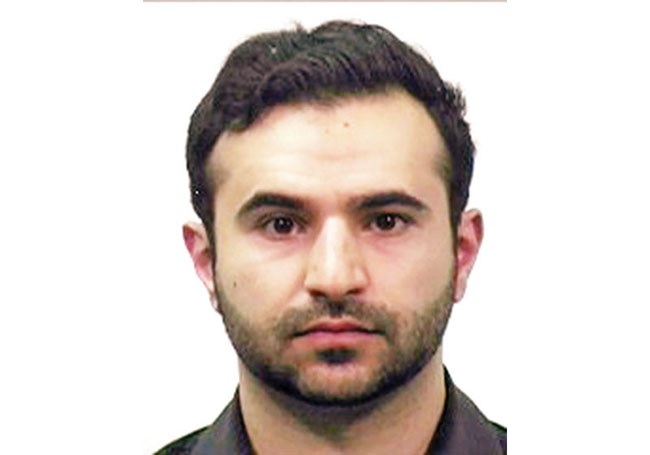Richmond-raised serial rapist Novid Dadmand has been sentenced to an indefinite term in prison and labelled a dangerous offender by B.C. Supreme Court Justice Paul Pearlman.
Dadmand, 32, was previously found guilty of sexually assaulting five women after posing as a modelling agent and then subsequently manipulating, intoxicating and/or drugging the women leading up to his crimes, described in court as “predatory and remorseless.”
Two of the victims were unconscious when Dadmand had intercourse with them — attacks that he recorded on video. Those tapes were subsequently seized by police.
Dadmand will spend at least the next seven years in prison with no chance of parole (he can apply for day parole after three years). Thereafter he may apply for parole every two years. He has been ordered to provide his DNA to the government and is to be registered as a sex offender.
According to testimony, Dadmand was born in Italy and immigrated to Richmond as a child. He graduated high school in 2002 and received a criminology degree at Simon Fraser University in 2010. In the midst of his known crimes, which began in 2012, he was pursuing an education degree. He reported to court he was a poor retail employee, bouncing from job to job. The Richmond News understands at one time he lived on No. 2 Road and once worked at the nearby Rogers Video.
On May 3, at the conclusion of Dadmand’s dangerous offender hearing, Pearlman declared Dadmand a dangerous offender after hearing from victims and an assessment from clinical psychologist Dr. Wilbert Reimer, among other experts in the corrections field.
Reimer noted Dadmand “used drugs and alcohol to reduce inhibitions, which allowed him to gain control of his victims as part of his offending pattern.”
He said Dadmand’s “predatory and remorseless use of these women is indicative of a person who has little capacity for changing his behaviour.
“Even after having been confronted with the impact of his actions on his victims he continued to engage in the same behaviour. This demonstrates a callousness that is unusual for even the most entrenched offender,” said Reimer, referring to Dadmand’s breach of bail conditions, when he continued to pursue women and use the Internet even after being arrested in 2014.
During his 2016 trial, Dadmand’s counsel claimed several of the victims understood the nature of the sexual activities as being part of the auditions, which included the possibility of pornographic work. They argued that while the accused’s actions may have been immoral, they were not illegal because the victims consented.
But Pearlman disagreed and found Dadmand guilty of sexually assaulting the five women.
In one case, where the woman was unconscious, Pearlman noted in his ruling that “it was impossible for her to have consented to sexual activity under those circumstances.”
The same was said about another unconscious woman.
One of his other victims, a 19-year-old university student and aspiring model, thought she was too short to be a model. But when Dadmand told her that personality and drive were more important than height, she thought someone was giving her a chance for a modelling career.
Dadmand persuaded her to do an audition and picked her up at the Richmond-Brighouse Canada Line station and drove her to his home, saying his studio was not available. At the home and during the course of an “audition,” he touched her sexually.
Last September Dadmand filed to have the dangerous offender hearing thrown out because it had taken 16 months since his guilty verdict. But Pearlman ruled the timeframe was sufficient and acknowledged the Crown prosecutor’s argument that such a process is lengthy.



